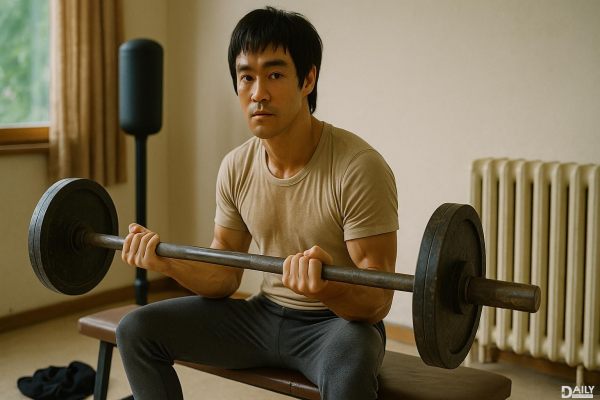I never thought I'd find humility and inner peace by flailing my arms around in slow motion, but here we are. Thirty days ago, I rolled my eyes at the idea of Tai Chi—until it quietly dismantled my ego and rewired my nervous system. What started as a joke ("I'll try anything once") became a daily ritual that exposed how badly I needed to unclench—both physically and mentally. Turns out, moving like a tranquil sloth forces you to confront your own impatience, one deliberate breath at a time.
The Wake-Up Call: My First Tai Chi Class Was a Disaster
Picture this: a Type-A overachiever in leggings, convinced she could master "slow-mo karate" in one session. Within minutes, my instructor gently pointed out that my shoulders were hovering near my ears like startled turtles. My attempts at the "Wave Hands Like Clouds" move resembled a malfunctioning robot. The harder I tried to control the movements, the more my limbs rebelled. Tai Chi doesn't tolerate rushing—it schooled me immediately. That first class revealed how disconnected I was from my own body, how my "resting" state was actually a low-grade panic mode. The real lesson? Progress begins when you stop fighting the process.
Why Slowing Down Accelerates Self-Awareness
Western fitness culture obsesses over burning calories and beating personal records. Tai Chi flips the script: the "work" is in resisting urgency. Each morning, I'd practice the foundational "Standing Like a Tree" posture—basically hugging an imaginary sequoia for 10 minutes. At first, my brain treated it like a hostage situation ("When does the workout START?!"). But gradually, something shifted. Noticing the way my weight distributed unevenly between my feet, sensing tension in my jaw I'd ignored for years—these micro-revelations became more valuable than any HIIT endorphin rush. The slower I moved, the more I uncovered about my habitual stress patterns.
The Unexpected Physics of Softness
Here's the paradox no one tells beginners: Tai Chi's power comes from yielding, not forcing. When learning "Push Hands" (a partner exercise), I kept bracing for impact like a linebacker. My instructor laughed, "You're blocking energy you're supposed to redirect. Be like the bamboo—rooted but flexible." That reframe changed everything. In daily life, I began catching myself hardening against minor frustrations—traffic, slow wifi, my cat knocking over plants. Tai Chi taught me to receive irritation without absorbing it, to let annoyances roll off like water beading on a lotus leaf. Who knew martial arts could make you bulletproof against bad vibes?
How Tai Chi Rewired My Nervous System
Around day 18, I noticed my body had developed a new autopilot. While stuck in a hellish airport delay, instead of doomscrolling, I found myself subtly shifting into "Embrace Tiger" stance near the charging stations. My breath deepened automatically when emails piled up. Science backs this up: studies show Tai Chi lowers cortisol and enhances parasympathetic response better than generic meditation. Unlike forcing myself to sit still and "empty my mind," the gentle movements gave my antsy body permission to relax. The motions became moving mantras—each repetition sanding down my fight-or-flight reflexes.
The Humility of Being a Perpetual Beginner
Here's the beautiful/humbling truth: after 30 days, I still suck at Tai Chi. My "Golden Pheasant" stance looks more like a drunk flamingo. But that's the point. In a world obsessed with instant mastery, Tai Chi demands you find joy in incremental progress. My instructor—a 70-year-old who moves like liquid silk—told me, "After 40 years, I'm still correcting my posture." That wisdom bled into other areas: I started approaching creative projects with less perfectionism, my relationships with more curiosity. Turns out, admitting you're unfinished is the fastest way to grow.
Tai Chi didn't just teach me how to flow through movements—it revealed how much I'd been resisting the natural currents of life. Now when stress hits, I don't white-knuckle through it; I plant my feet, soften my knees, and remember: even hurricanes pass over bamboo without breaking it. Not bad for 30 days of pretending to be a very slow ninja.
























